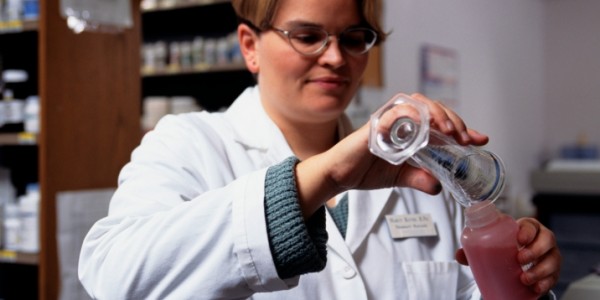Vancouver Community focuses on collaborative care during Pharmacy Awareness Month
VCH-Vancouver Community, partner pharmacies and pharmacists are forging collaborative care models that are leading to better medication management for clients in the community. Pharmacists are able to meet clients’ diverse pharmacy needs at a variety of locations, including at home or at specialized clinics, because these community relationships are growing and getting stronger.
Having pharmacists as players on larger multidisciplinary teams is key. “We have the opportunity to work in a collaborative setting,” says Anureet Sohi, pharmacy supervisor at the Downtown Community Health Centre (DCHC). Pharmacists at the onsite clinic can easily talk to clients’ physicians and care staff at the CHC as well as see their charts, creating a continuity of care that is usually reserved for hospital settings.
The newly launched VCH-Vancouver Medication Support Program that delivers daily medicine to eligible mental health and substance use clients and helps with intake also relies heavily on pharmacists. And pharmacists are essential to the success of the Vancouver Community Home Health Integrated Medication Management Program (IMMP), which delivers medicine weekly to home care clients who require assistance taking their prescribed medication.
“This is a partnership between home health, home support agency, the pharmacy and the physician,” says Maylene Fong, Manager, Evergreen CHC .She points out that IMMP clients work with a single pharmacy and all medications are delivered once a week in colour-coded bubble packs – which helps with overall consistency and facilitates monitoring.
Onsite pharmacists
At the Downtown Community Health Centre, pharmacists go beyond their traditional role. “What differentiates us here at this pharmacy is that we ensure our clients have all the financial coverage that is afforded to them by working in collaboration with our financial aid worker,” says Sohi.
At this clinic, pharmacists focus on reducing barriers to care, including the ability to access medication to improve clients’ overall health. They go the extra mile because it’s in the best interests of the population the clinic serves. Clients may not have access to a telephone or may be unable to navigate the applications for special authority coverage. “There’s a lot of background work that many people don’t know we do,” Sohi says.
Something new
As part of the DTES 2nd Generation Strategy, a new walk-in addictions clinic will open this fall, with pharmacists part of the multidisciplinary team. Clients with untreated addictions will have access to assessment and medications to mitigate and treat their addiction symptoms. Medication management, assessment of side effects and interactions will be further supported by the pharmacy team.
Creating opportunities to communicate with clients
All of these programs that integrate pharmacists share something unique: they create possibilities for client engagement, exchanges, monitoring, and coaching related to medicine management. They’re also facilitating more integrated communication between health professionals and pharmacists, which is something that can be challenging to find in more traditional health care settings.
Vancouver Community relationships with pharmacists are making a difference to client care everyday because they:
- Improve adherence to medication schedules
- Increase the reporting of adverse reactions
- Create additional opportunities for assessment and monitoring
- Produce less medication waste
- Establish opportunities to build relationships and proactively educate clients
- Centralize clients’ prescriptions at a single pharmacy
- Improve medicine management and reconciliation
- Prevent health issues before they occur
- Assist in administering medications safely and accurately

